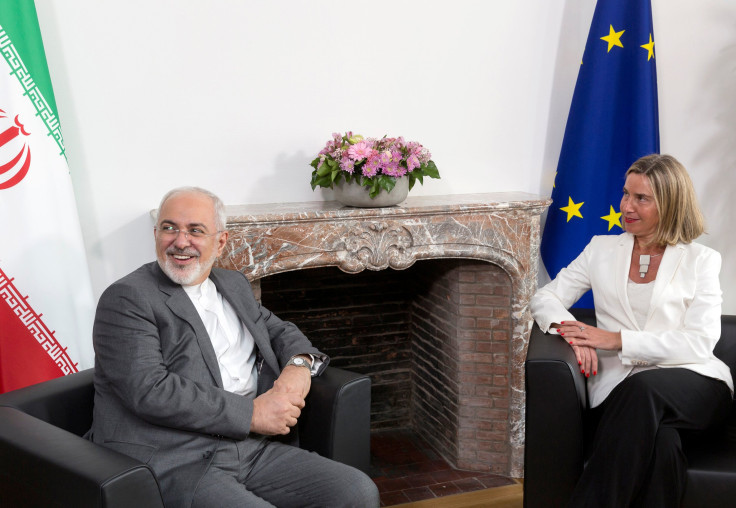Iran Calls On World To Save Nuclear Deal, Stand Against US 'Bullying'

Iran’s foreign minister Mohammad Javad Zarif on Sunday called on the world to stand up to Washington’s “bullying” behavior and save the nuclear deal, in a letter to his counterparts, Reuters reported.
The deal was struck under former president Barack Obama’s administration in 2015 and the Trump administration chose to pull out of the deal, the president has long derided, on May 8 calling it a “terrible deal.”
The Joint Comprehensive Plan of Action (JCPOA), as it is officially called, mandates Iran minimize its enriched uranium projects in exchange of major sanctions having been placed on the country by major economies for decades.
The other economies part of the deal, namely Britain, France, Germany, Russia and China still contend the deal is the right option for Tehran and the world, and Zarif called "the remaining signatories and other trade partners" to "make up for Iran's losses" due to U.S.’ exit.
Iran’s state news agency INRA published parts of the letter and quoted Zarif saying in it that “The JCPOA (nuclear deal) does not belong to its signatories, so one party can reject it based on domestic policies or political differences with a former ruling administration.”
He pointed out that the nuclear deal was a product of “meticulous, sensitive and balanced multilateral talks,” and said renegotiation, as the U.S. has demanded, was not on the table.
Zarif said the U.S.’ exit was an “illegal withdrawal” and that Washington was employing "bullying methods to bring other governments in line," thereby discrediting the international rule of law.
The deal, among other restrictions, imposed on Iran to slash its stock of enriched uranium, number of centrifuges and machines that enrich uranium and involved requiring them to allow long-term visas and satisfactory working allowances to 130-150 U.N. designated nuclear inspectors.
Trump would prefer a bigger deal that would also include Iran limit its support for proxies in Syria, Iraq, Yemen and Lebanon, and also curb its ballistic missile program. According to a Telesur report, the president also wants atomic inspections in Iran to continue indefinitely, rather than until 2025 as the agreement states.
Iran’s top leader Ayatollah Ali Khamenei set out conditions European powers would need to comply with in order for Tehran to remain part of the nuclear deal. Those conditions included safeguarding trade with Tehran and guaranteeing Iran oil sales, Reuters reported.
Since the JCPOA took effect in 2016, Iran has stopped producing about 20 percent of its enriched uranium from before the deal, thereby giving up a majority of its stockpile, Telesur reported.
Other parties to the deal have stressed to the Trump administration that withdrawing from the deal is counterproductive and imperils the effort of limiting Iran’s atomic weapons development.
Saudi Arabia and Israel congratulated Trump on his decision to abandon the JCPOA and reimplement sanctions on the country.
“This was a horrible one-sided deal that should have never, ever been made,” Trump said at the time, the New York Times reported. “It didn’t bring calm, it didn’t bring peace, and it never will.”
© Copyright IBTimes 2025. All rights reserved.






















